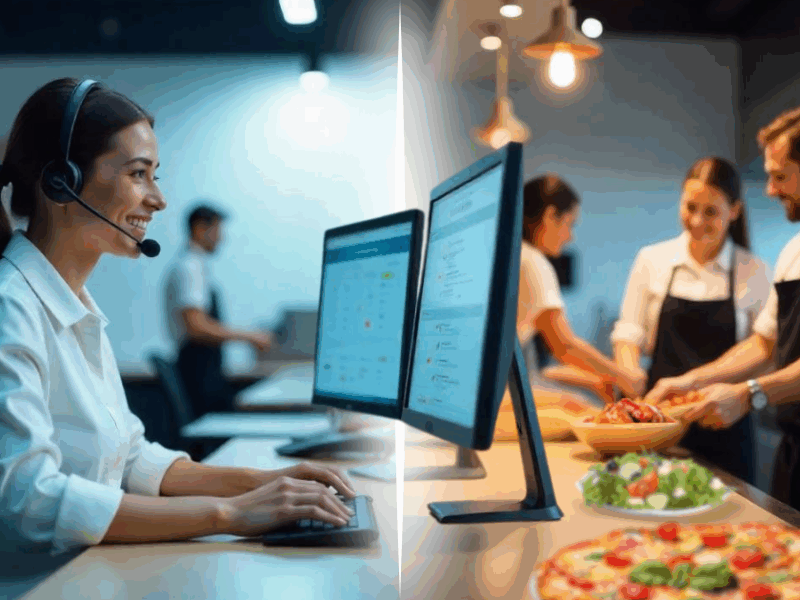For quick-serve restaurants and their customers, convenience is incredibly important. Customers want to place orders quickly, receive responses instantly, and access support through their preferred communication channels. This demand for flexibility makes multichannel support a critical factor in a QSR’s success.
Multichannel support allows QSRs to interact with customers across multiple platforms—via phone, email, social media, or mobile apps. For QSRs that rely on call centers for order taking and customer service, offering a seamless multichannel experience can enhance customer satisfaction, streamline operations, and boost sales.
Why Multichannel Support Matters
Gone are the days when customers relied solely on phone calls to place orders or ask questions. Now, customers expect to engage with brands in ways that fit their lifestyle, whether texting, chatting on social media, or sending an email. Here’s why many channels of communication are vital for QSRs:
Enhanced Customer Experience
Providing multiple communication channels gives customers the freedom to choose how they interact with your brand. Whether they prefer to call in their order, message via social media, or use an app, meeting customers where they are ensures a smooth and satisfying experience that increases loyalty.
Faster Response Times
Multichannel support enables faster response times. Call centers that handle inquiries through phone, chat, and social media can manage orders and address issues more efficiently. Customers don’t have to wait on hold—they can reach out through their preferred platform and receive a prompt response.
Increased Order Accuracy
For QSRs, accurate order-taking is crucial. Multichannel support systems in call centers allow orders across various platforms, reducing the risk of miscommunication and improving order accuracy. This results in fewer errors and happier customers.
Multichannel Ordering Increases Customer Retention
Customers are more likely to return to a QSR that offers them convenience. Multichannel support fosters loyalty by providing consistent and accessible customer service, making it easier for customers to place orders and resolve issues.
Scalability and Flexibility
As QSRs grow, multichannel support helps them scale efficiently. Call centers can adapt to handle higher volumes of orders and customer interactions across multiple platforms without compromising service quality.
The Backbone of Multichannel Support
Call centers play a pivotal role in enabling QSRs to provide multichannel support. Modern call centers are equipped with technology that allows agents to seamlessly switch between communication channels, ensuring that every customer interaction is smooth and efficient.
Order Taking Across Channels: Whether a traditional phone call or a message through a mobile app, call centers offering multichannel support can handle order-taking through various platforms. This flexibility ensures that the process is streamlined and accurate no matter how a customer prefers to place their order.
Data Integration: Multichannel support isn’t just about offering multiple communication options and integrating them. A well-managed call center ensures that all customer data is unified, regardless of the channel. This allows for consistent communication and follow-up, ensuring that a customer who starts a conversation on one platform can continue it on another without missing a beat.
Meeting the Future of QSR Customer Service with Multichannel Services
As QSRs evolve, the importance of multichannel support will only increase. By using call centers with advanced multichannel capabilities, QSRs can meet customers where they are, offer exceptional service, and stand out in a competitive market.
The takeaway? In today’s QSR environment, flexibility is key. Multichannel support isn’t just an option—it’s a necessity. With the right call center partner, QSRs can ensure they provide the convenience, speed, and accuracy that modern customers demand, helping build loyalty and driving growth.




 Please wait...
Please wait...